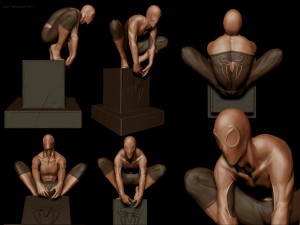How Did Sport Get So Big? The Economist

 Reading The Quaterly from The Economist "Once, it was only a game. Now sport is a never-ending drama, a soap opera watched all over the world". by TIM DE LISLE.
Reading The Quaterly from The Economist "Once, it was only a game. Now sport is a never-ending drama, a soap opera watched all over the world". by TIM DE LISLE.
This article summaries the transition of sports from being a game to replicating shirts worn not only for children but for grown men and women, all over the world.
Tim De Lisle pinpoints five spurts in the growth of sport.:
- Broadcastesrs? Yes, television. As Tim De Lisle metion, "most people in developed world brought a TV set, allowing bit sports events into our living rooms"
- The Dassler Family? Adolf Dassler an athlete, and Rudolf Dassler a sales who formed Adidas and Ruda which was soon renamed by Puma. Andrew Jeming says they created "Sports Marketing".
- Was it big businesses? "The link to coporate industry is far greater than it was in the past," Joe Maguire says. "It's a real-time, 24/7 billion-dollar industry". Helathy industry, food industry, merchandising, the link to the corporate industry is far greater than ever in the past.
- Written Word? Newspapers change fast, though space for sport rarely appear on stage, it has been increasingly grown, and this trend has been increased by the internet, which gives written journalism endless space, greater reach, more urgency and more readers as Tim De Lisle says.
- And Film and Music? Before were cinema stars, then transition took place in rock music, now the sports figures are much more attractive and interesting. "They are in the tradidional heroic mould". "The sports stars of today are the movie stars of yesterday" says the singer and poet Leonard Cohen.
- Changes in Society? This point is very interesting as it you may have not been aware on how much sports depend on transport. As Tim De Lisle says "Sport would never have got anywhere without transport. The growth of the railways in the 19th century allowed teams to play matches that were not just local derbies, and thence to form leagues. International tournaments were slow to get going because they relied on sea travel, now aerplanes. Wider social currents have lapped at sport too, racism, sexism, nationalism. For decdades it was assumed that if football was live on television, attendances would fall; instead total ticket sales have grown almost every since the Prmiership was formed, and live broadcasting allowed, in 1992."